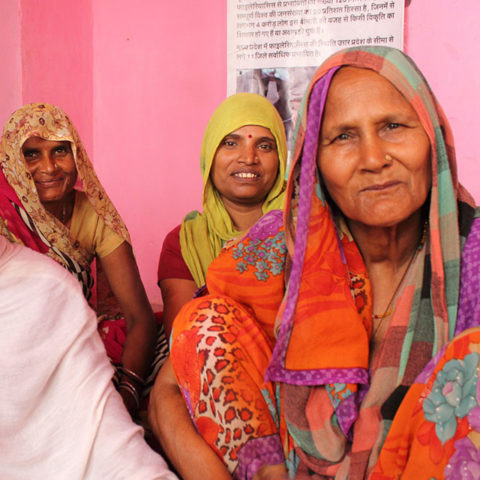
Rights of women affected by leprosy
The Leprosy Mission and Disabled Persons International co-hosted an important event during December on the rights of women affected by leprosy. It took place as a side event during the UN’s major disability rights conference, the Conference of State Parties of the CRPD Convention.
Attendees heard from three women affected by leprosy: Lilibeth Evarestus of Nigeria, and Maya Ranaware and Jayashree Kunju of India. Other speakers were Alice Cruz (UN Special Rapporteur on the elimination of discrimination against persons affected by leprosy and their family members), Amar Timalsina (chair of IDEA Nepal) and Pradeep Bagival (from UNDP Lao).
Lilibeth Evarestus, who is a member of the ILEP Advisory Panel of women and men affected by leprosy, spoke about the challenges women with disabilities face in accessing healthcare. “I appeal to governments at all levels to provide excellent standards of accessible health facilities that women can access without difficulty. Many of us are old, with little education, and may not withstand the long or rigorous travel or administrative protocols that are too often needed to access healthcare. Good standards of living and good health cannot exist without one another, they are interwoven.”
Maya Ranaware, also a member of the ILEP Advisory Panel, spoke about the hidden discrimination that women affected by leprosy may face. She commented that leprosy is a ‘neglected disability’ and is not always represented at disability platforms. “In the Covid-19 situation, we have seen all people losing livelihoods, and people affected by leprosy, especially women, will be at the bottom of the pyramid when it comes to getting their livelihoods back. Others will always get more attention and thus, Covid-19 has made it more difficult for women affected by leprosy to access livelihood opportunities.”
Jayashree Kunju spoke about the intersecting discrimination facing many women affected by leprosy. Even before leprosy is taken into account, women may struggle to thrive in their communities. Once you add the age-old stigma surrounding leprosy to this struggle, life can become “unbearable”. “I do request we look at the disease ‘leprosy’ as not just caused by bacteria, but one perpetuated by the State’s neglect. That may include lack of nutrition, lack of education and awareness, and a lack of sensitising communities to the complex manifestation of the disease.”
This is the first time that a major UN event has hosted a meeting to focus entirely on the rights of women affected by leprosy. It is an important step in efforts to ensure women affected by leprosy have a voice at the highest levels of policymaking.
The recording is available on YouTube and a write-up is available here.